Plan for the Week
TO DO THIS WEEK:
Follow up with LGBTQ+ officer, interested students, and SUBUSend out info myself via email and to society servers - BY FRIDAY AT LATEST EVEN IF I HADN'T HEARD BACK FROM OTHER SOURCESSUBMIT THESIS DRAFT LOL- FINISH MINIMIZING MARRIAGE AND ALL THOSE DOCUMENTARIES
- Start reading Thematic Analysis
- Do some research into interview structure and apply it to my rough plan
- Finish participant information sheet
Transcribe HeartstopperWatch Generation - IN PROGRESSACTUALLY UPDATE RESEARCH JOURNAL FOR STUFF YOU DID LAST WEEK- Transcribe Generation
Off to London! (again)
Went back to London for a few very busy few days of theatre and gallery exhibitions!
- The main reason I was in London was to see Hadestown (my favourite musical evarrrrr) on the West End. Not much to say other than it was incredible but I suppose it is another good example of the classic point from my dissertation that got the ball rolling on me wanting to write about aromanticism in the first place - the idea of the love story being a necessary part of a musical. Hadestown is baseed on the Greek myth of Orpheus and Eurydice, one of the most famous tragic love stories of all time, so it seems like an especially obvious example.
- Other than musical fun times I spent most of my time in London going to gallery exhibitions - of particular interest was the Women in Revolt exhibition at the Tate Britain! There were a lot of really interesting art pieces that touched on a lot of different social issues - the stuff about gender roles and women's sexual autonomy I think is particularly relevant to me, and it's fascinating how relevant these issues remain today! I also learned about some of the many feminist campaigns that have existed in Britain, such as the YBA Wife campaign that questioned why women should want to get married (relevant to me! Brake would love it I'm sure!) The exhibition also dealt with the intersections of different issues - they included an issue of Mukti magazine (a feminist magazine for Asian women) on Asian womens' experiences of sexuality, and a lot of work by queer women!
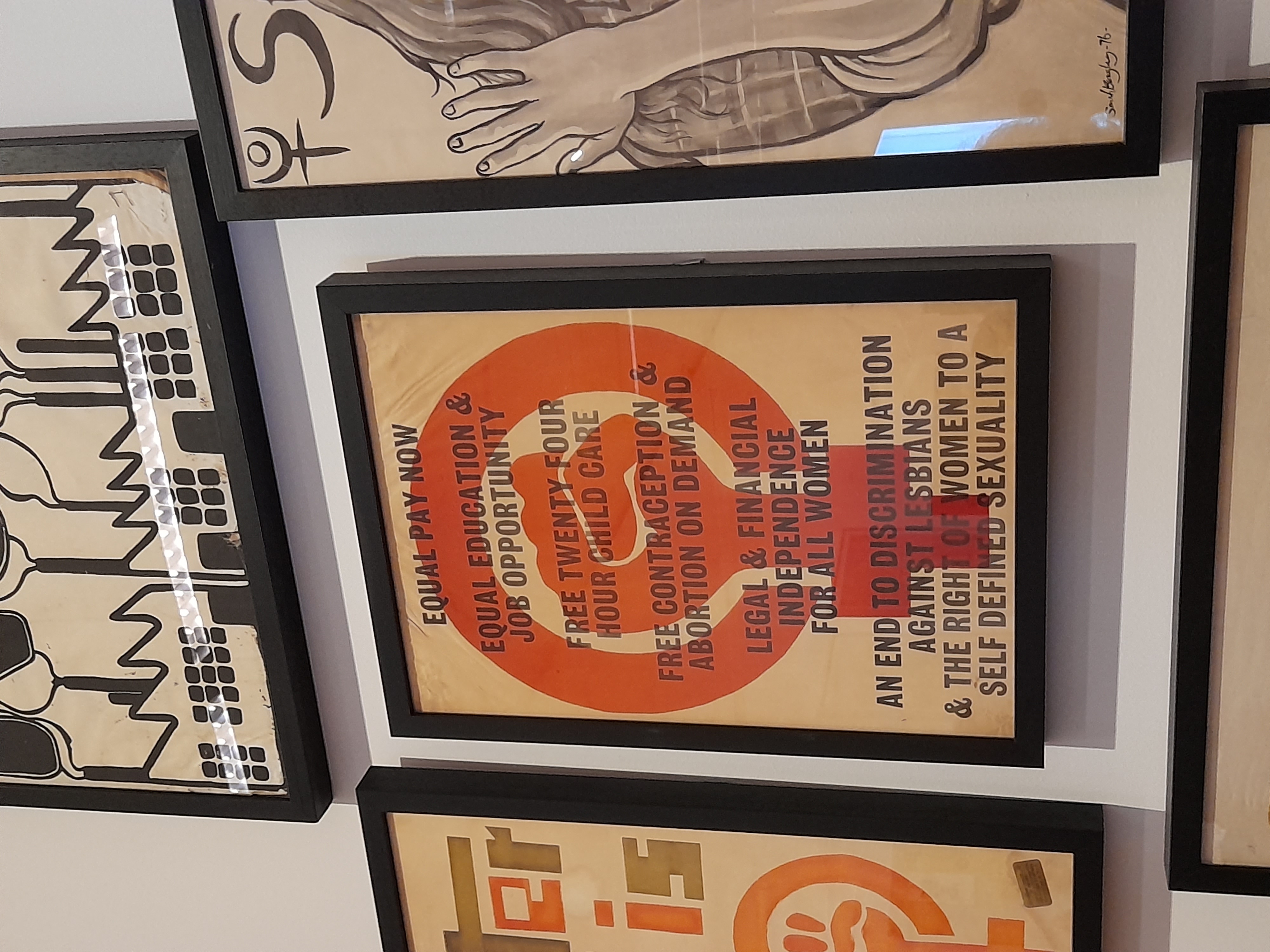
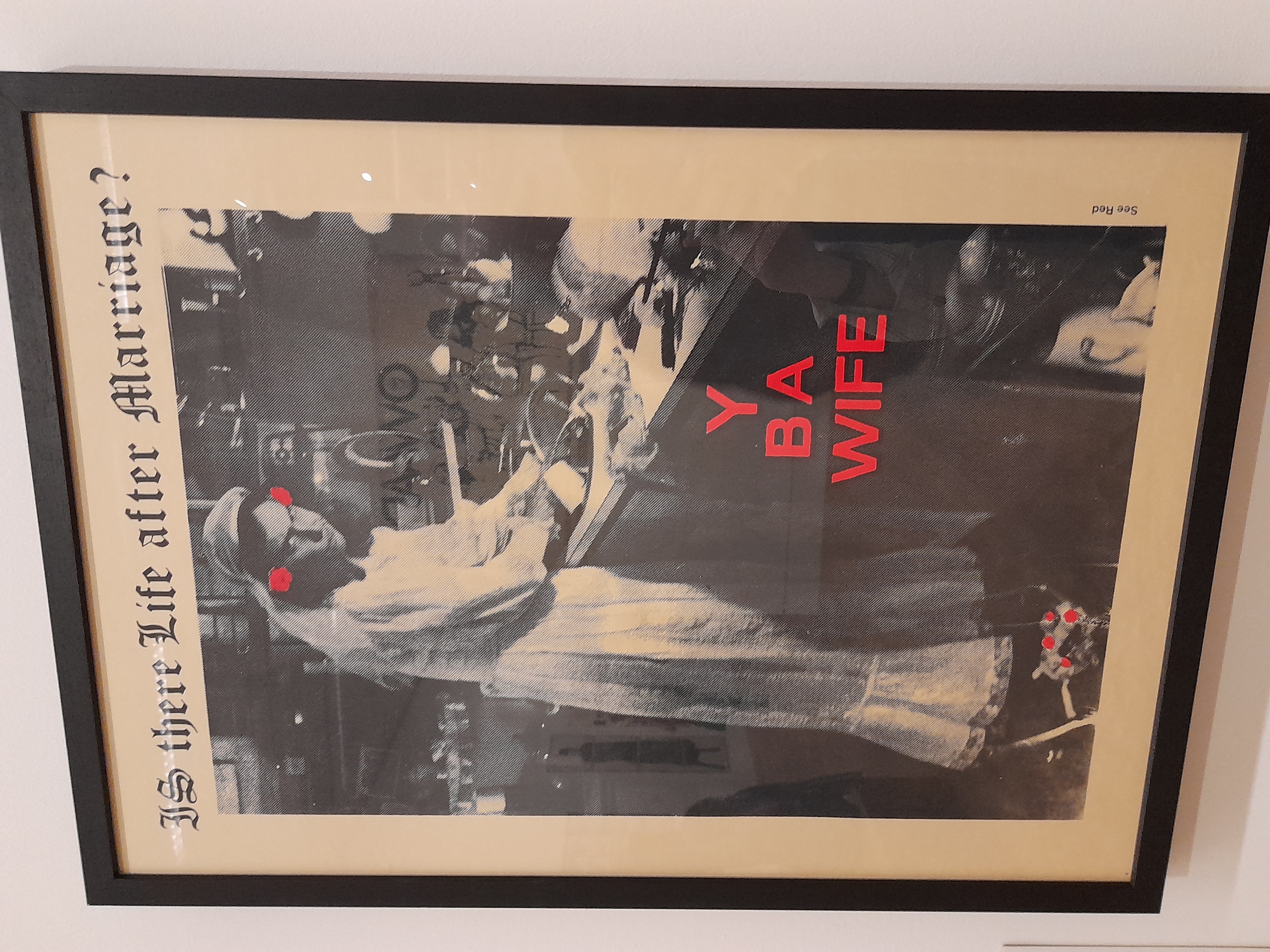
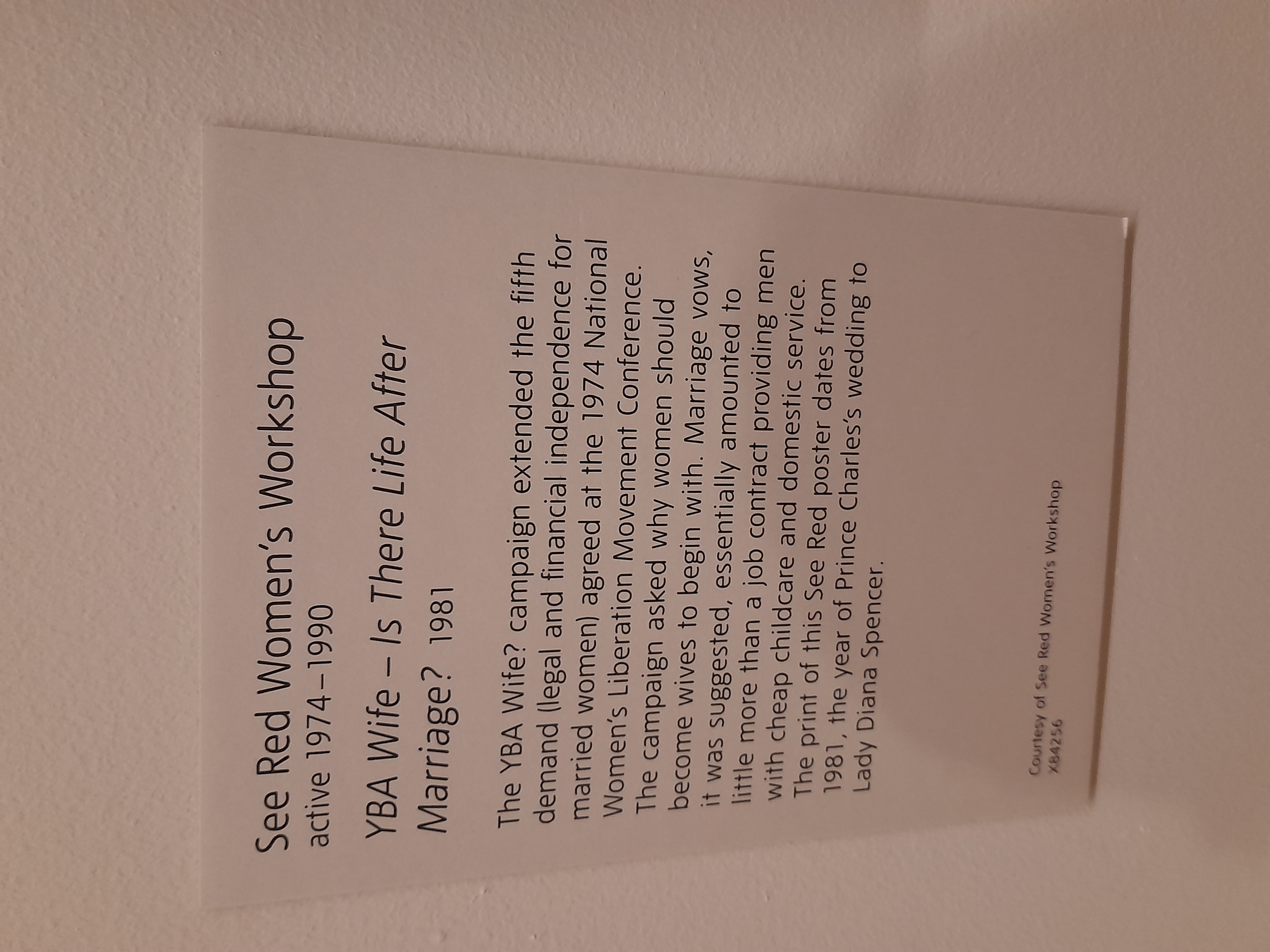
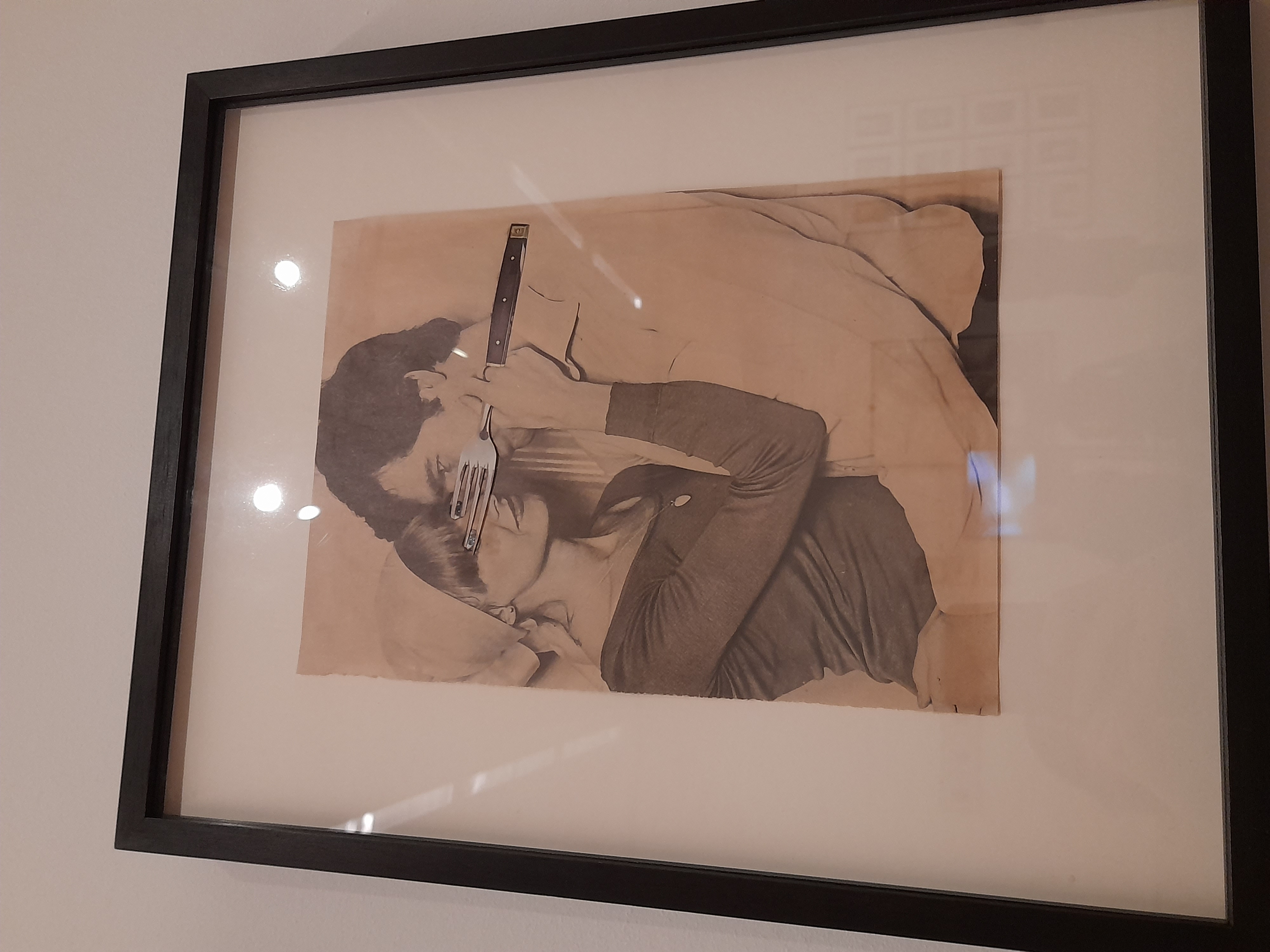
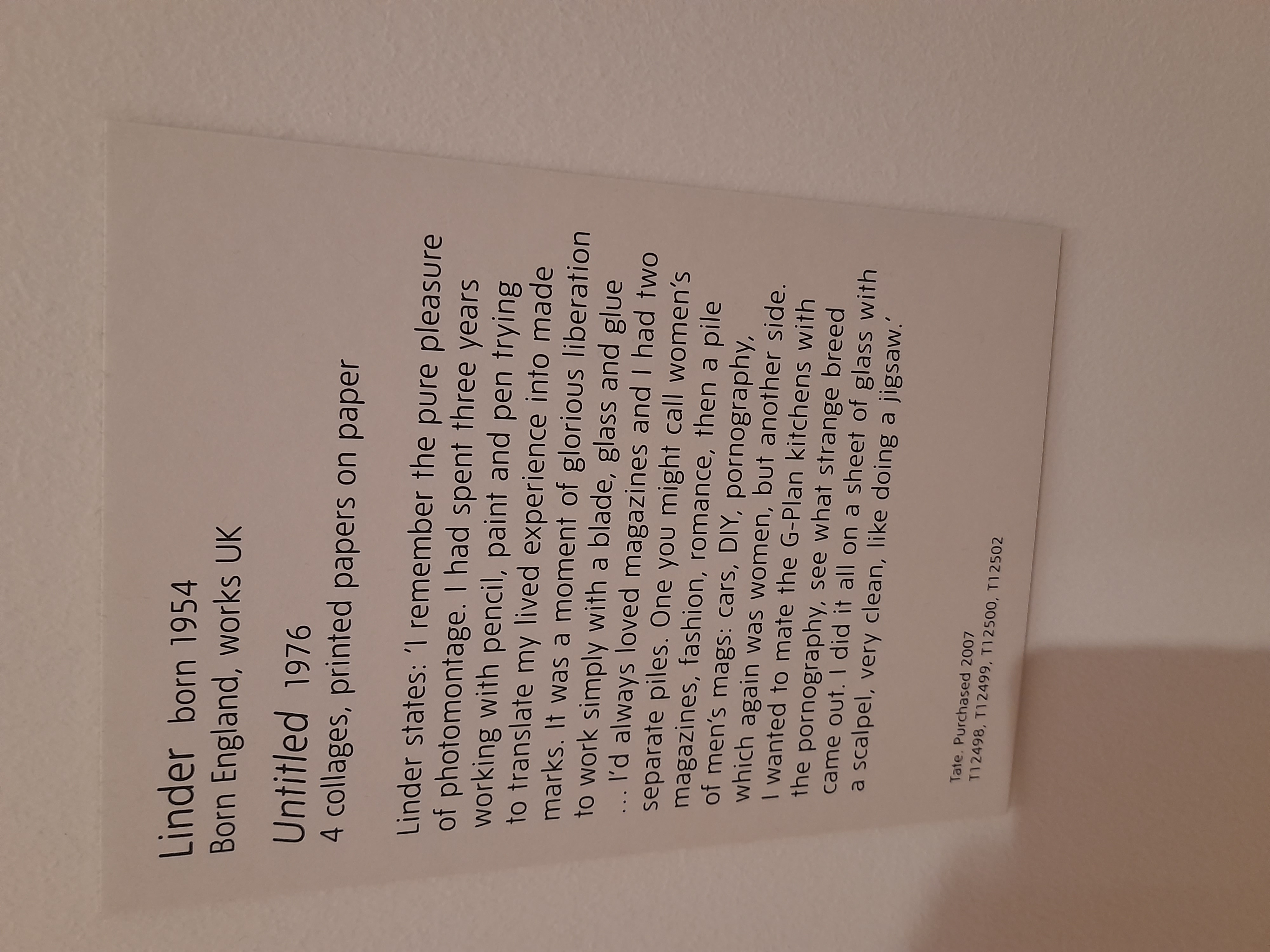
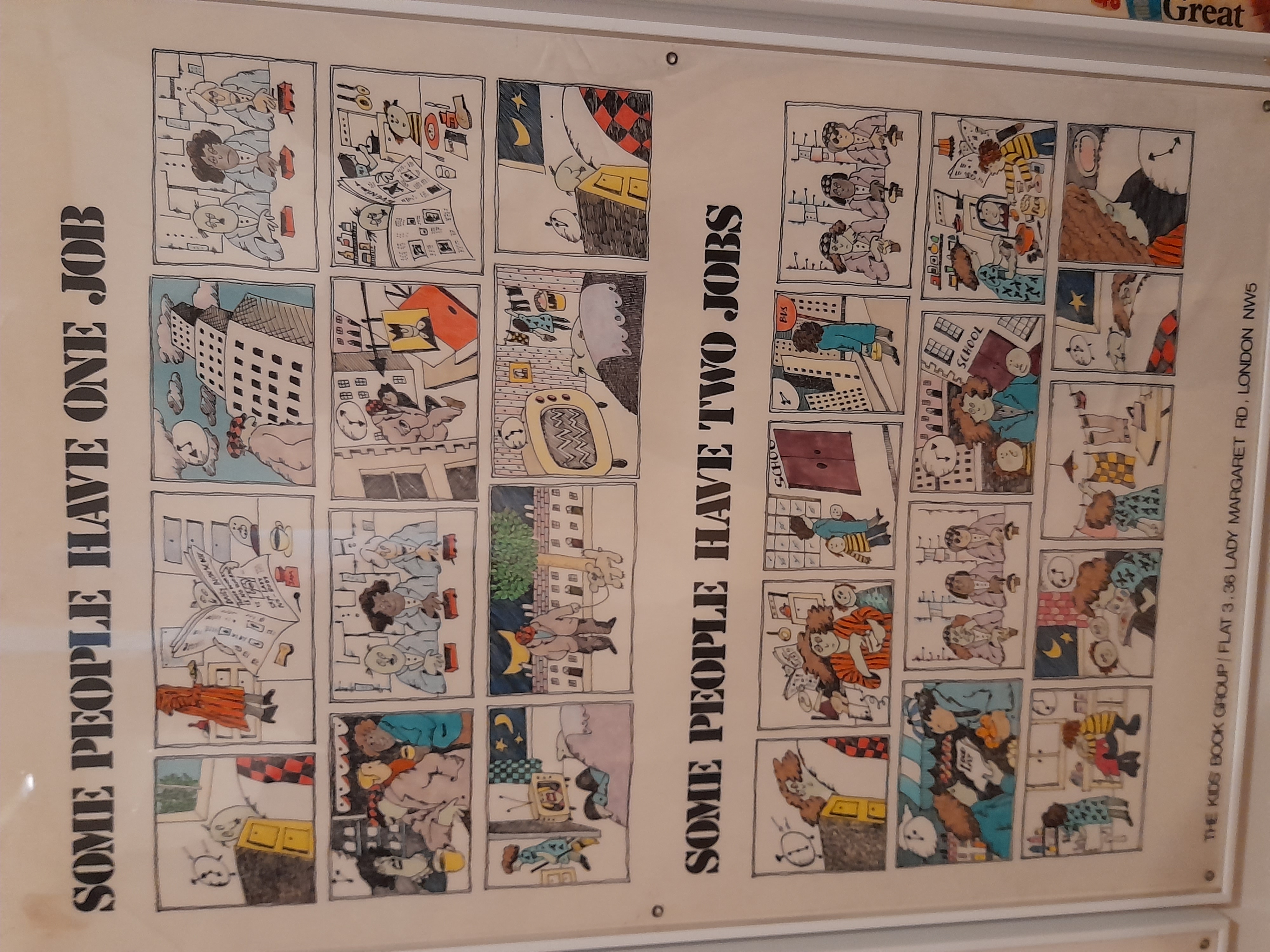
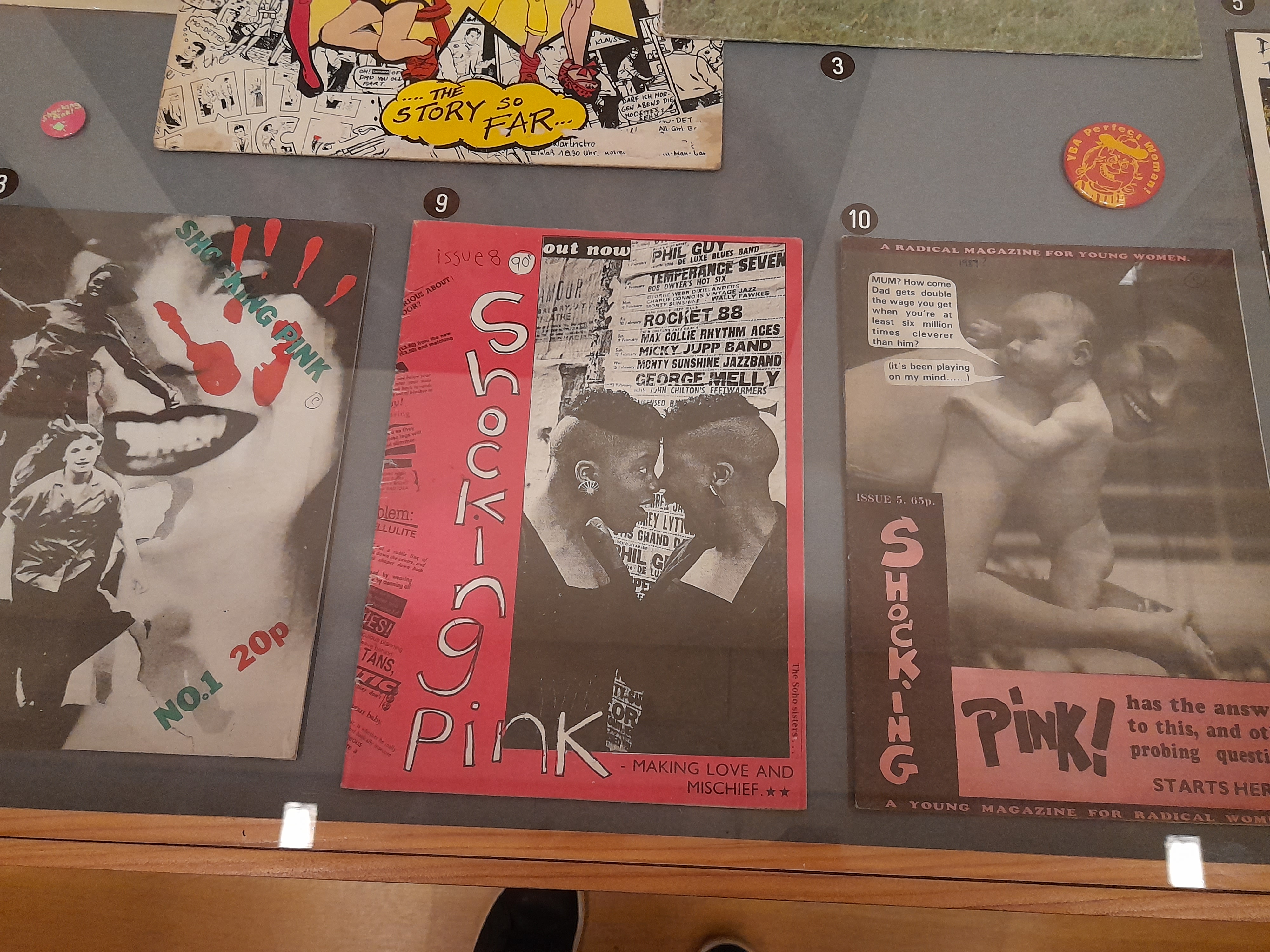
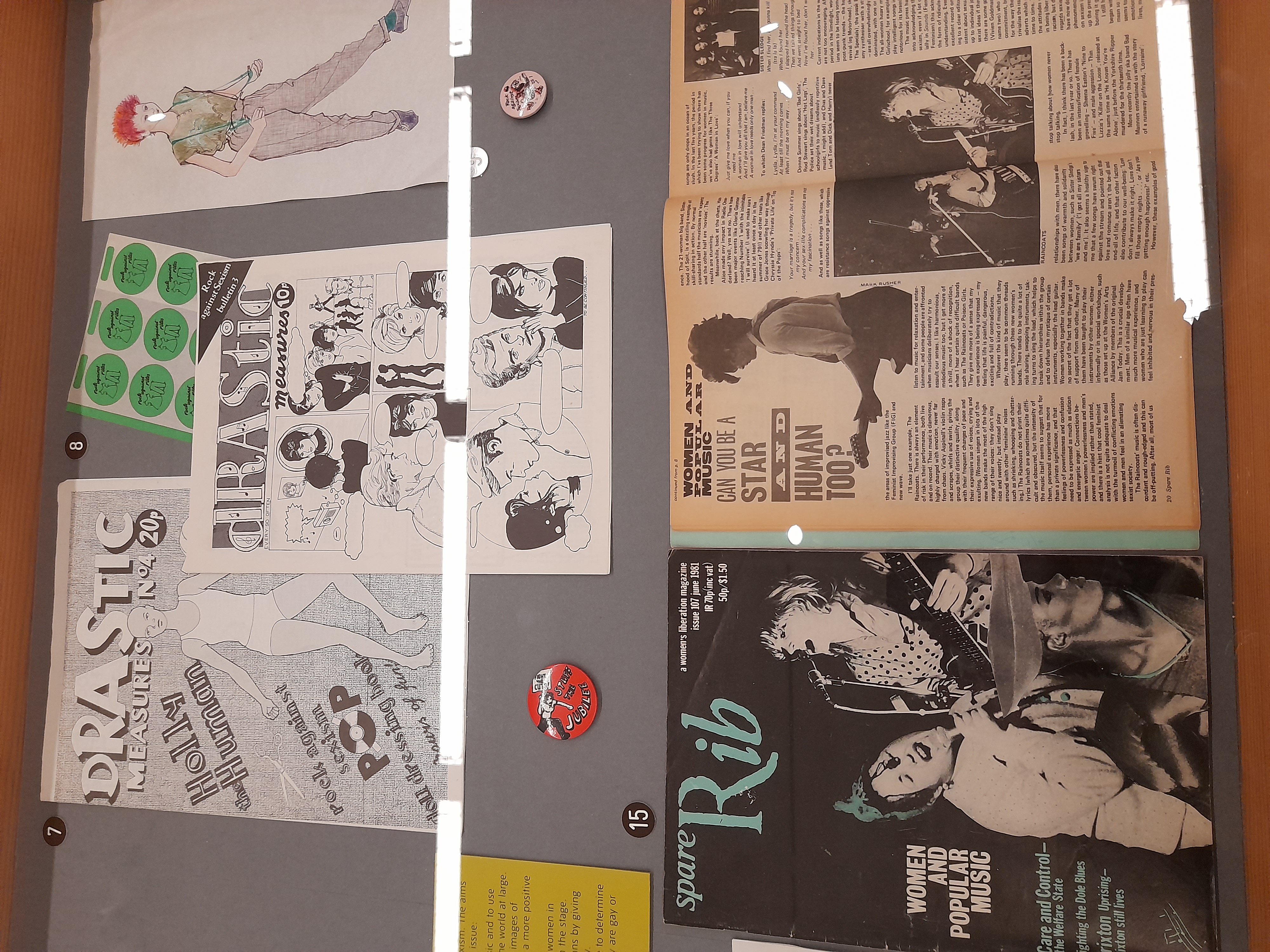
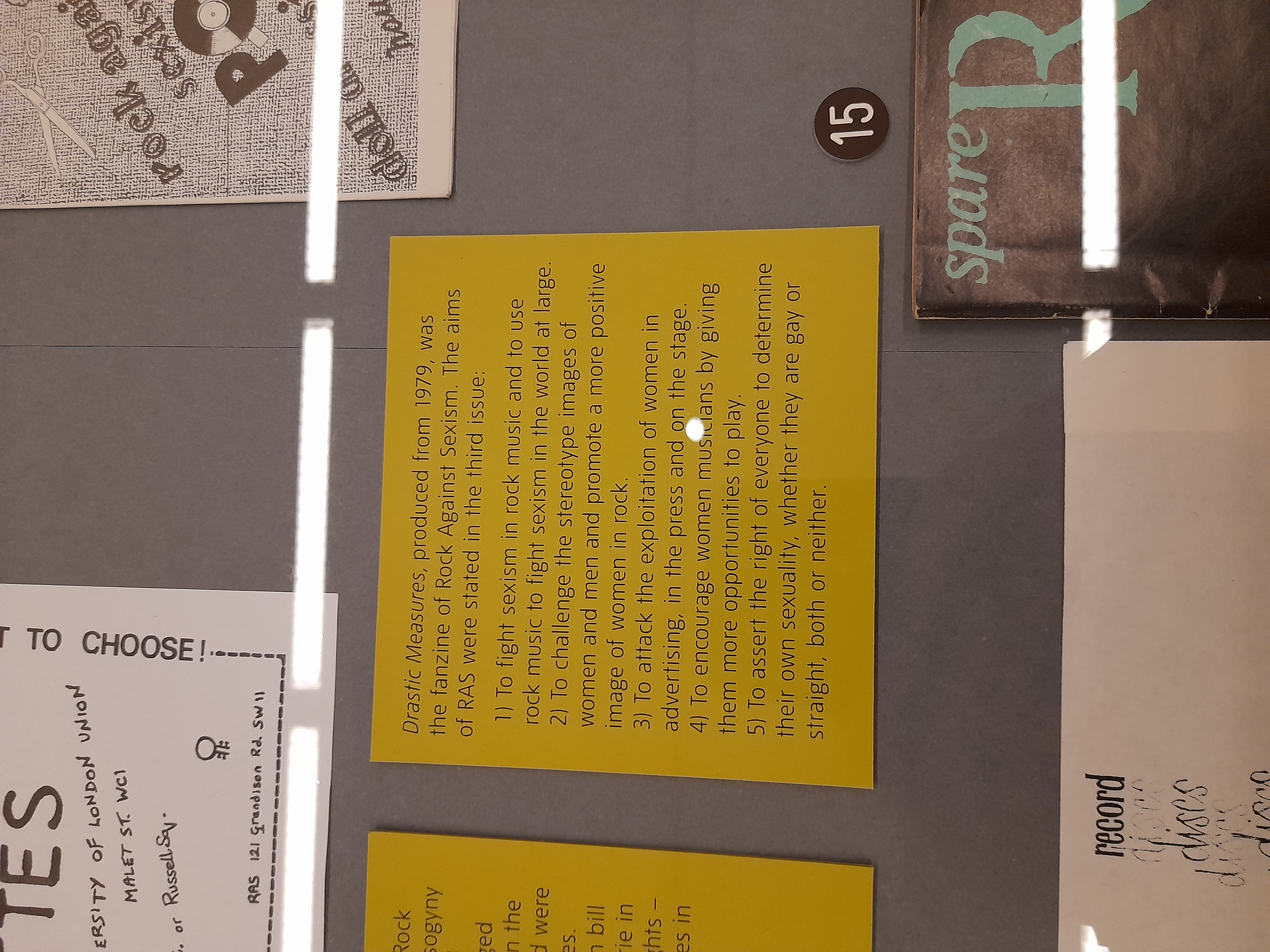
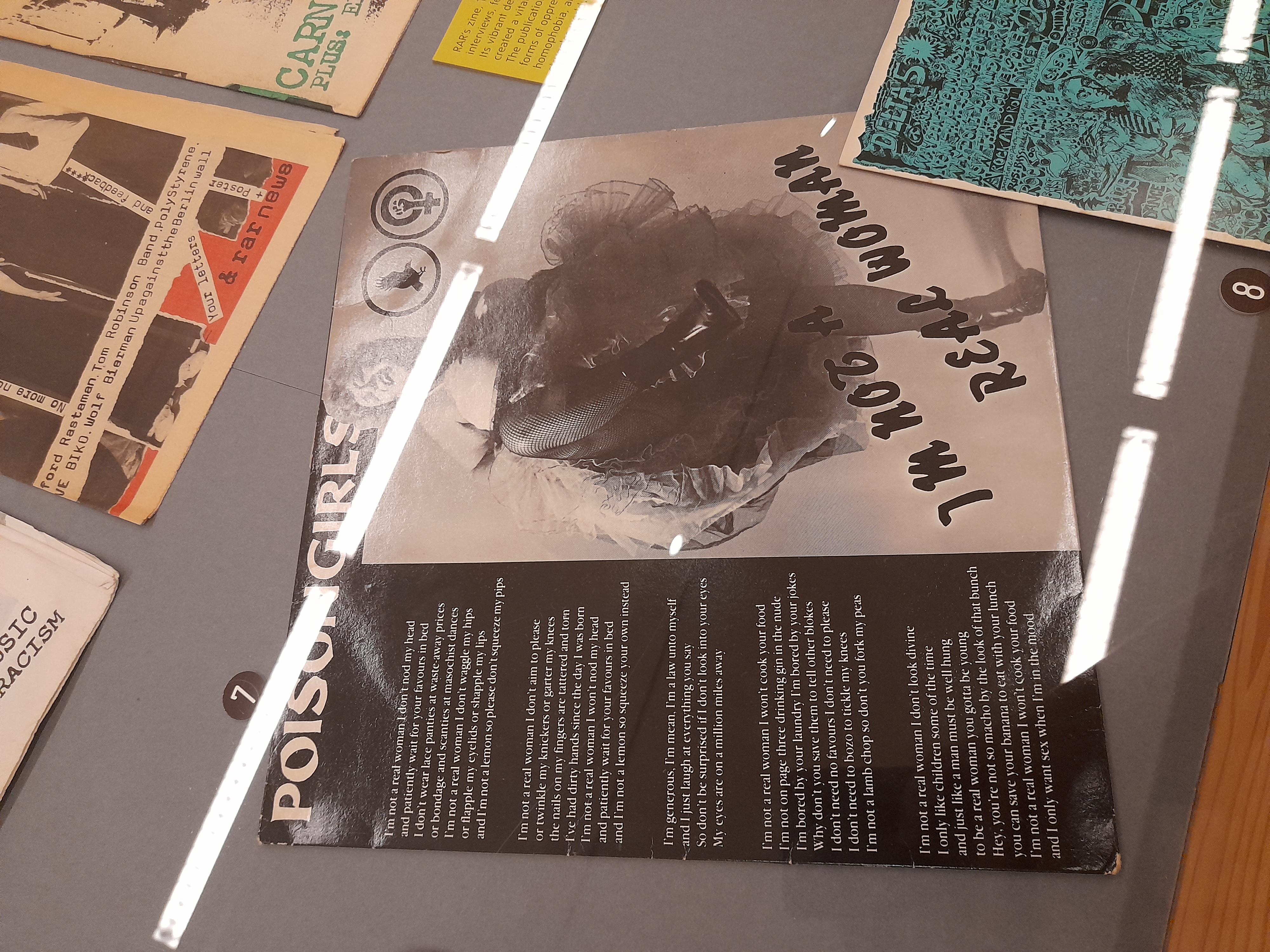
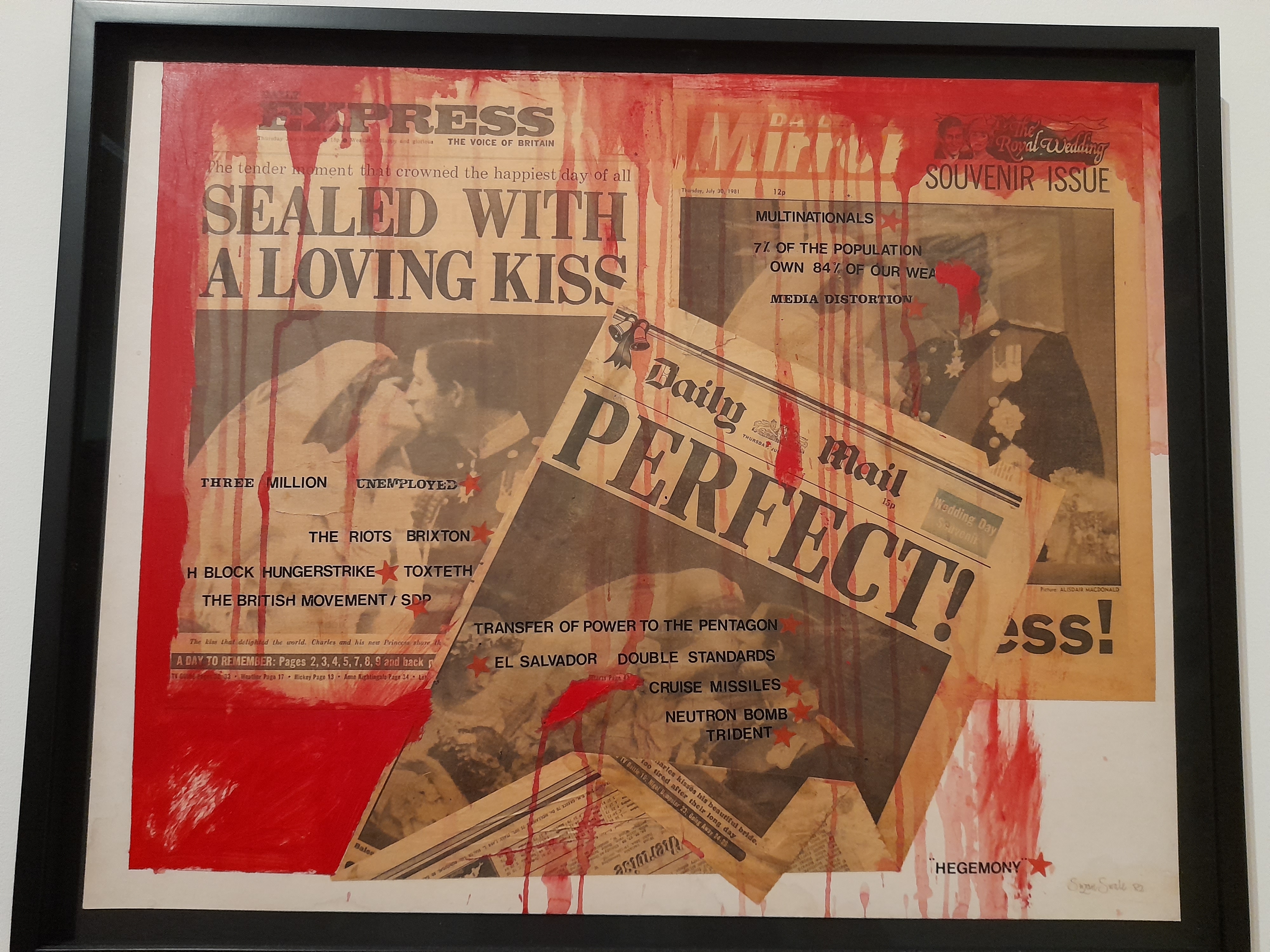
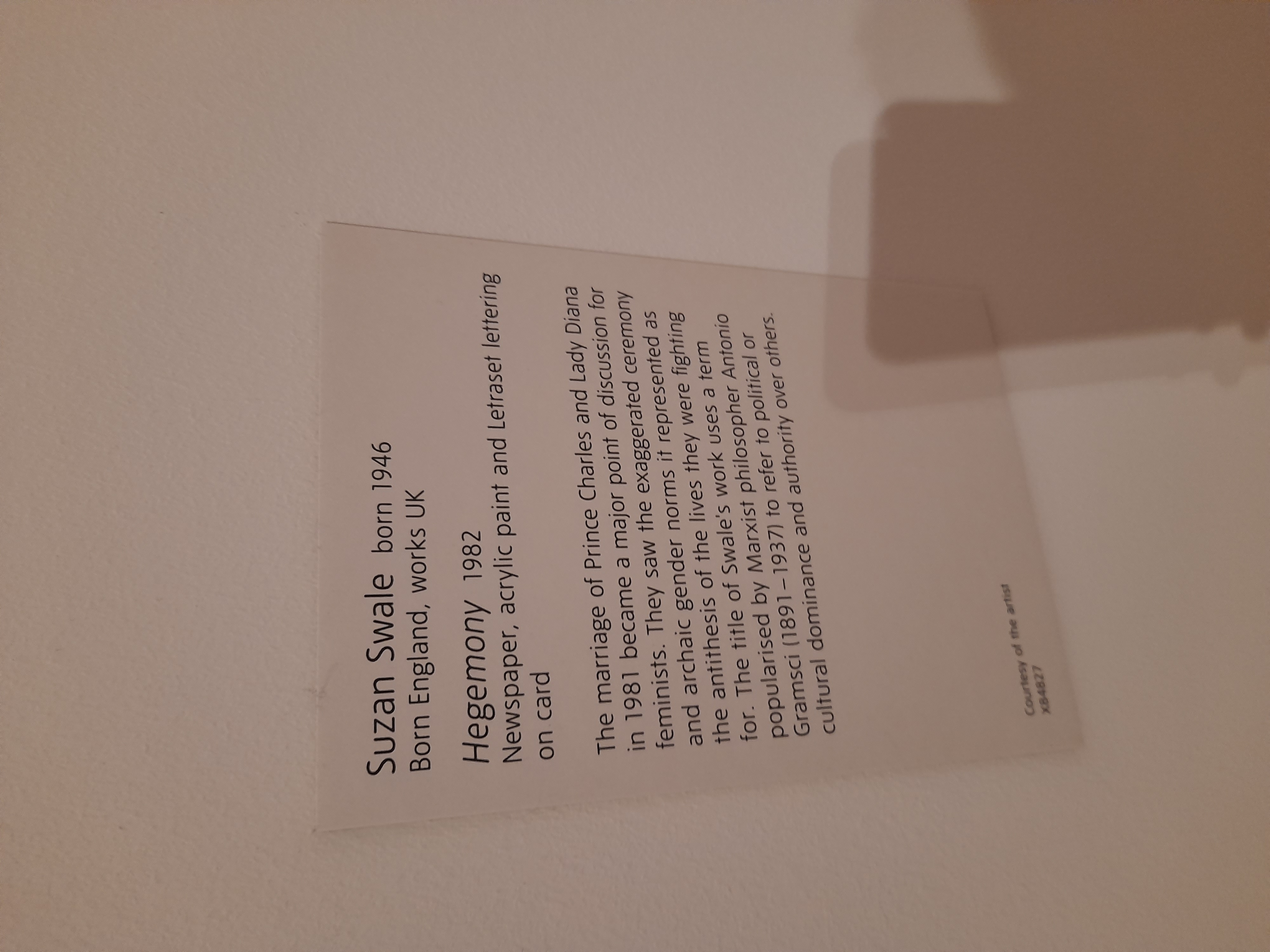
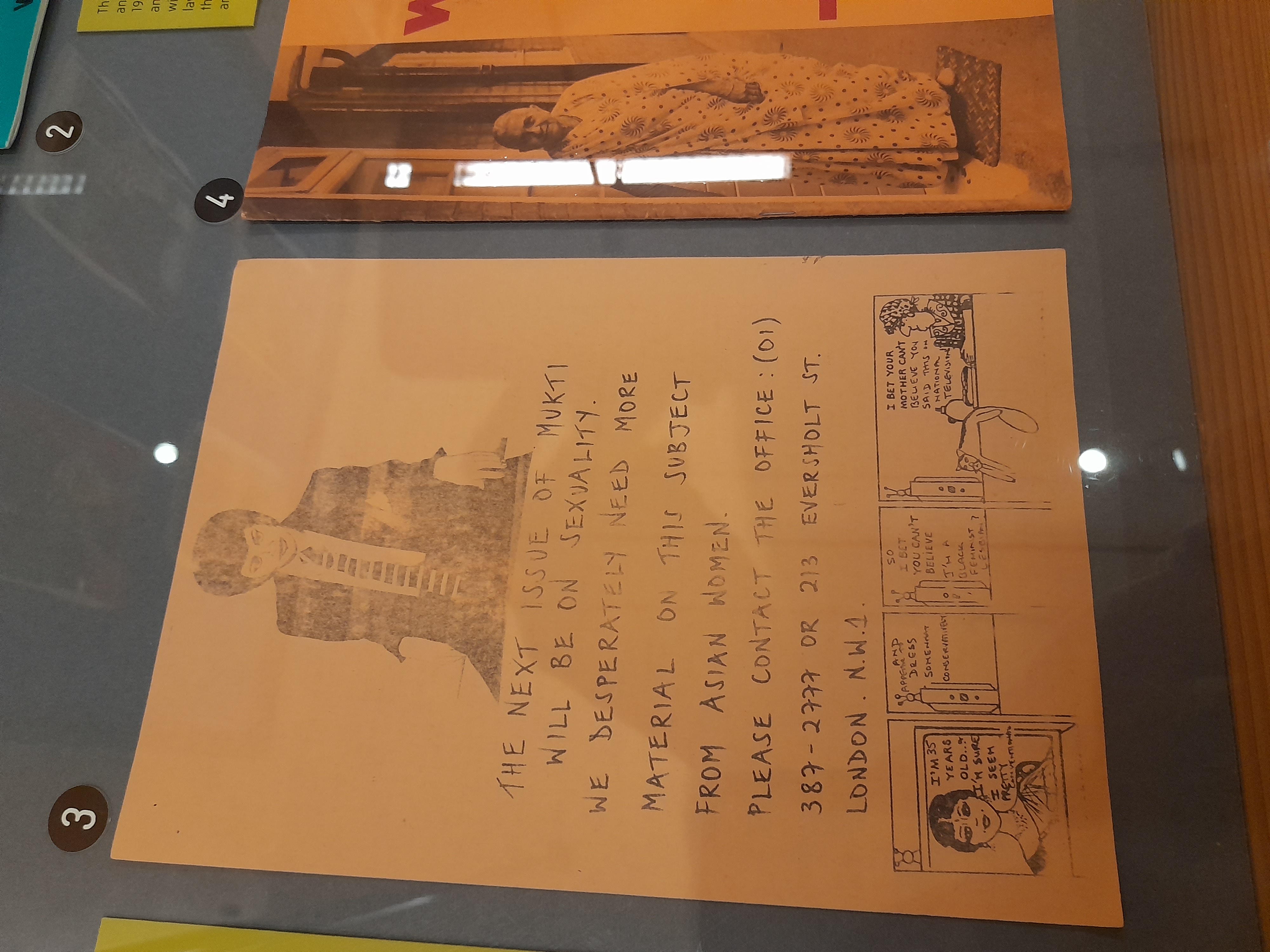
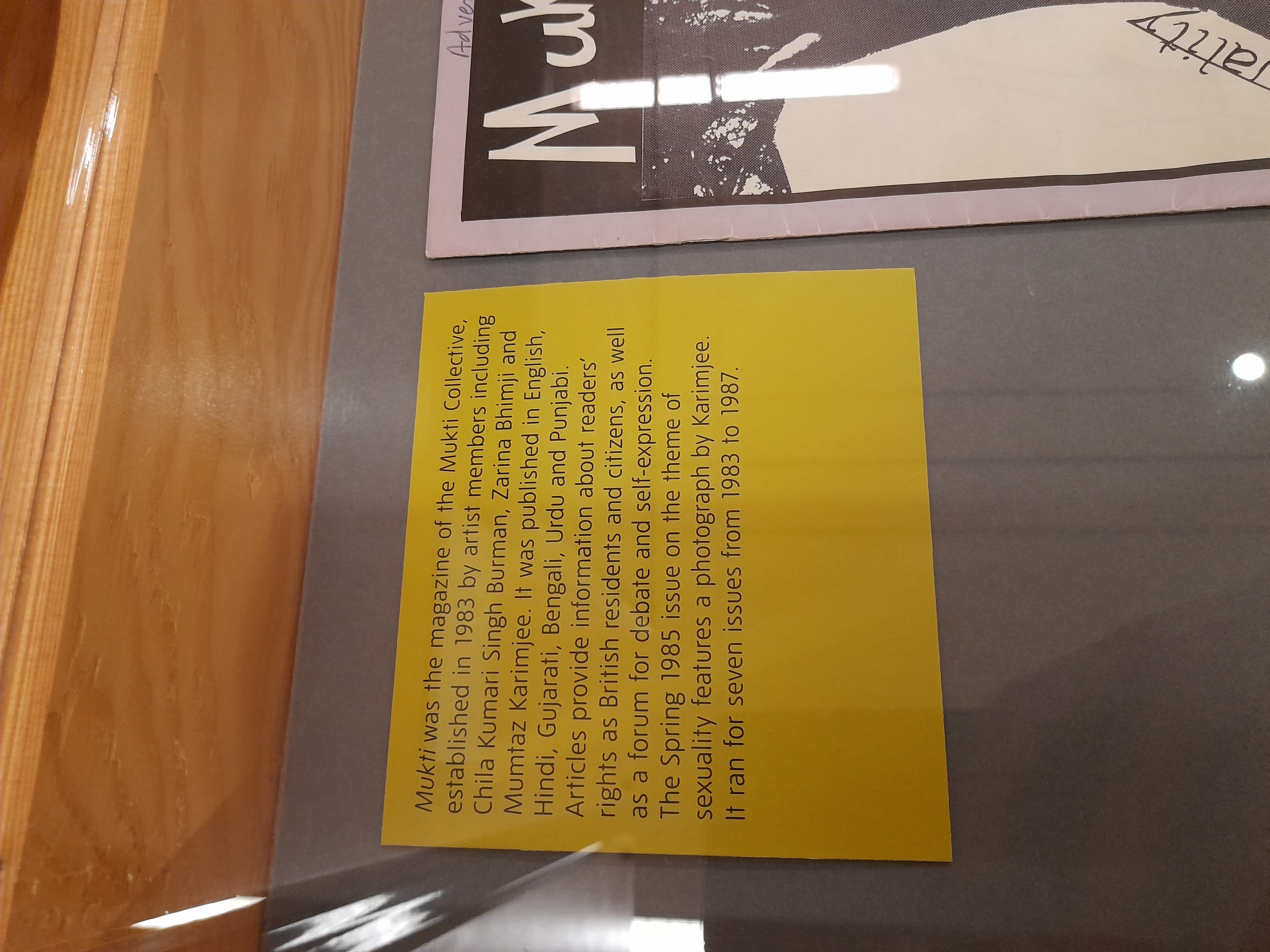
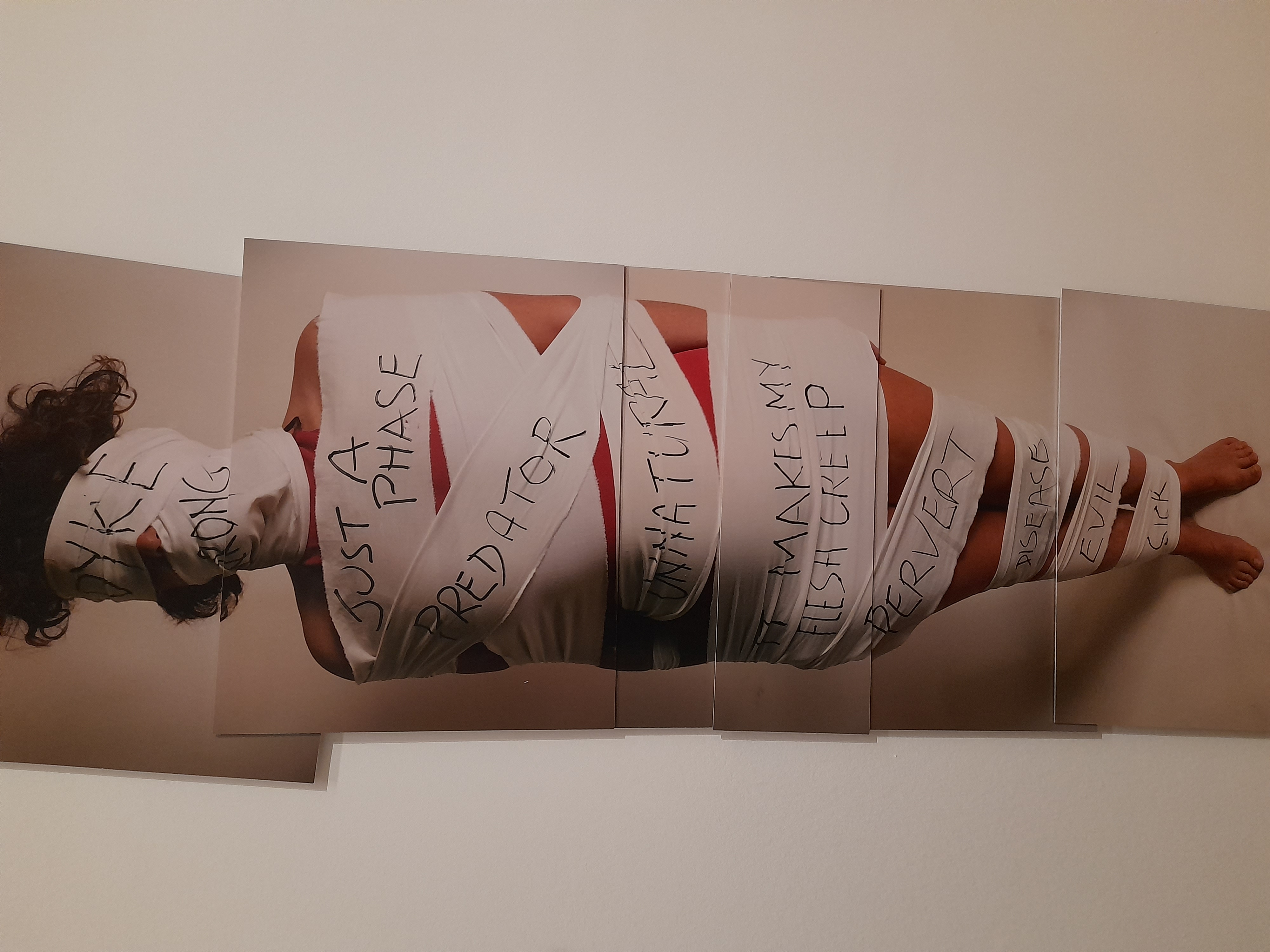
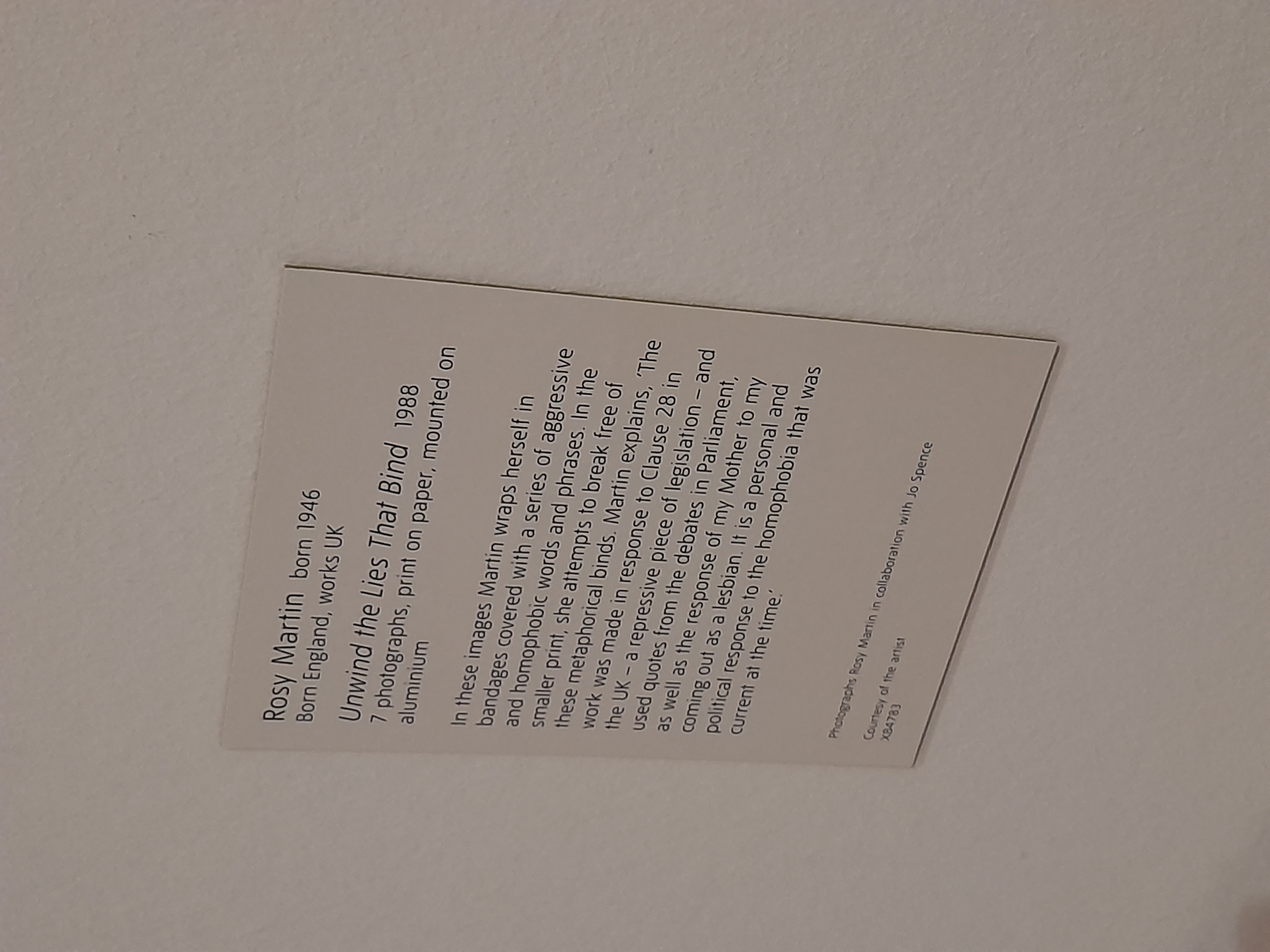
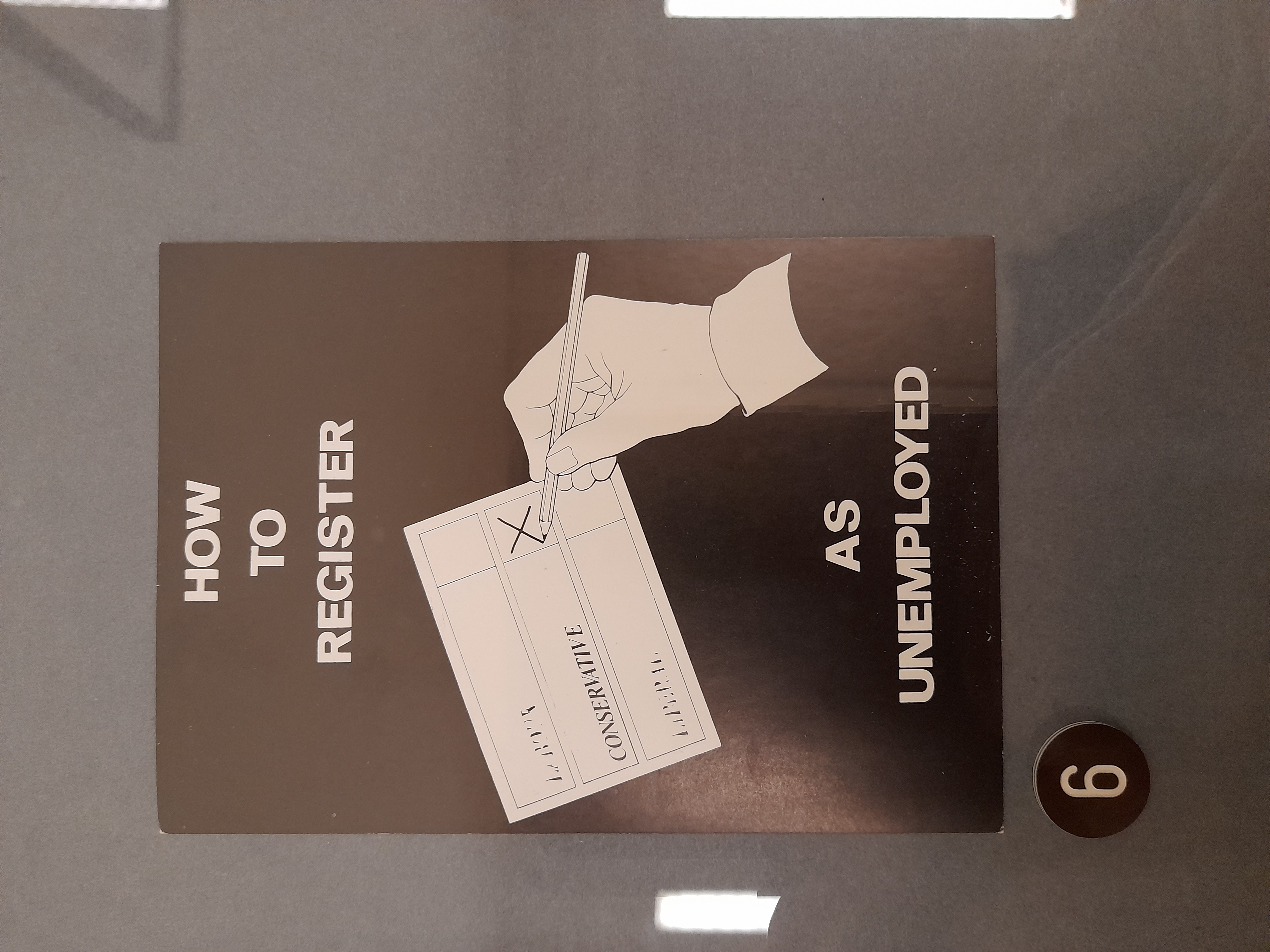
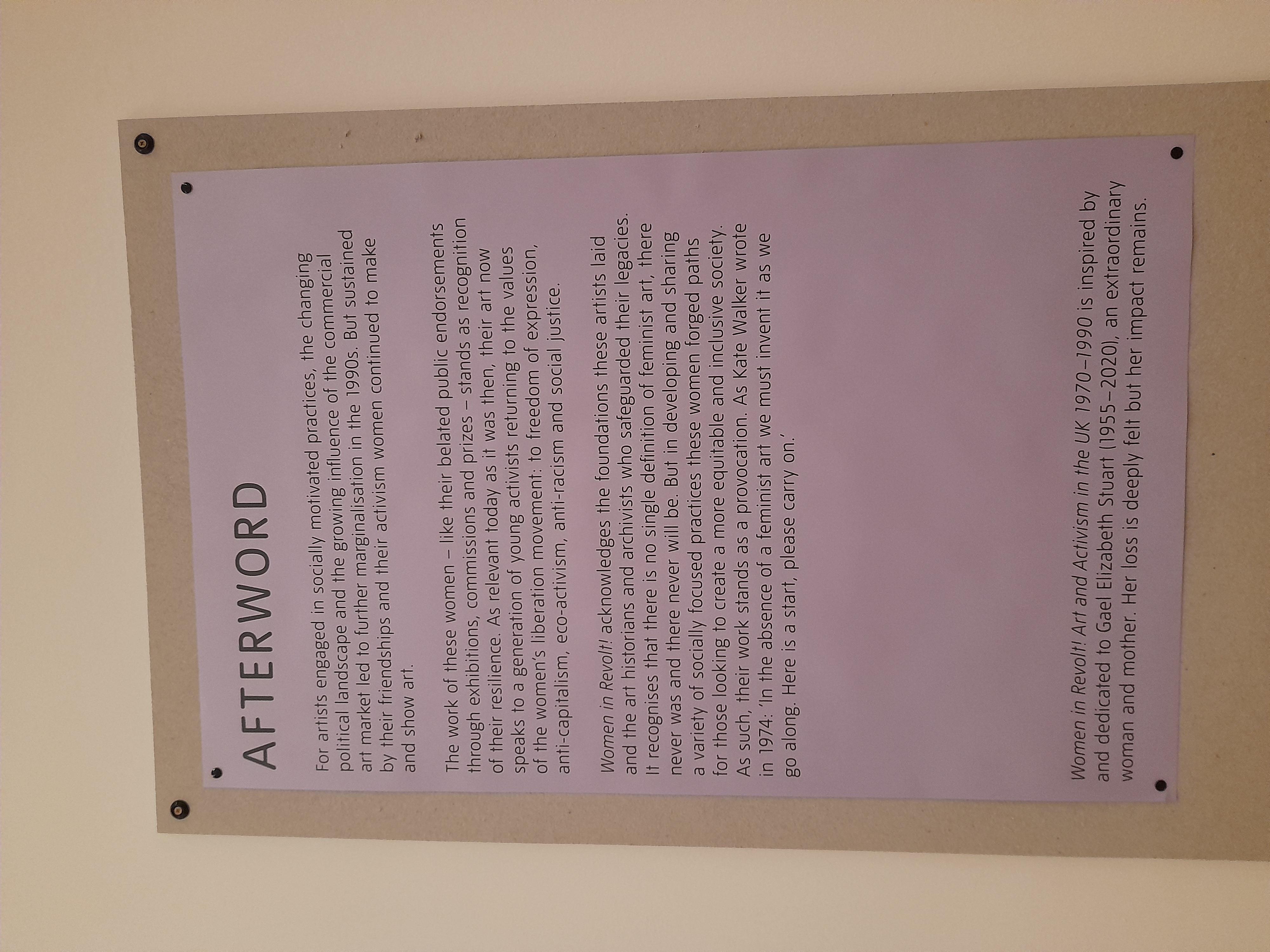
- I also saw some fascinating art installations at Studio Voltaire that dealt with race and gender. One was The Rebirthing Room, an interactive piece that used a video game-style experience to explore ideas of rebirth and transformation, particularly from a trans perspective. The other piece there was Far From the Start, a sound art installation (with an accompanying screen print display - great to see for me as a fan of traditional printing!) about the Windrush Generation, by an artist whose grandparents (?) were part of Windrush
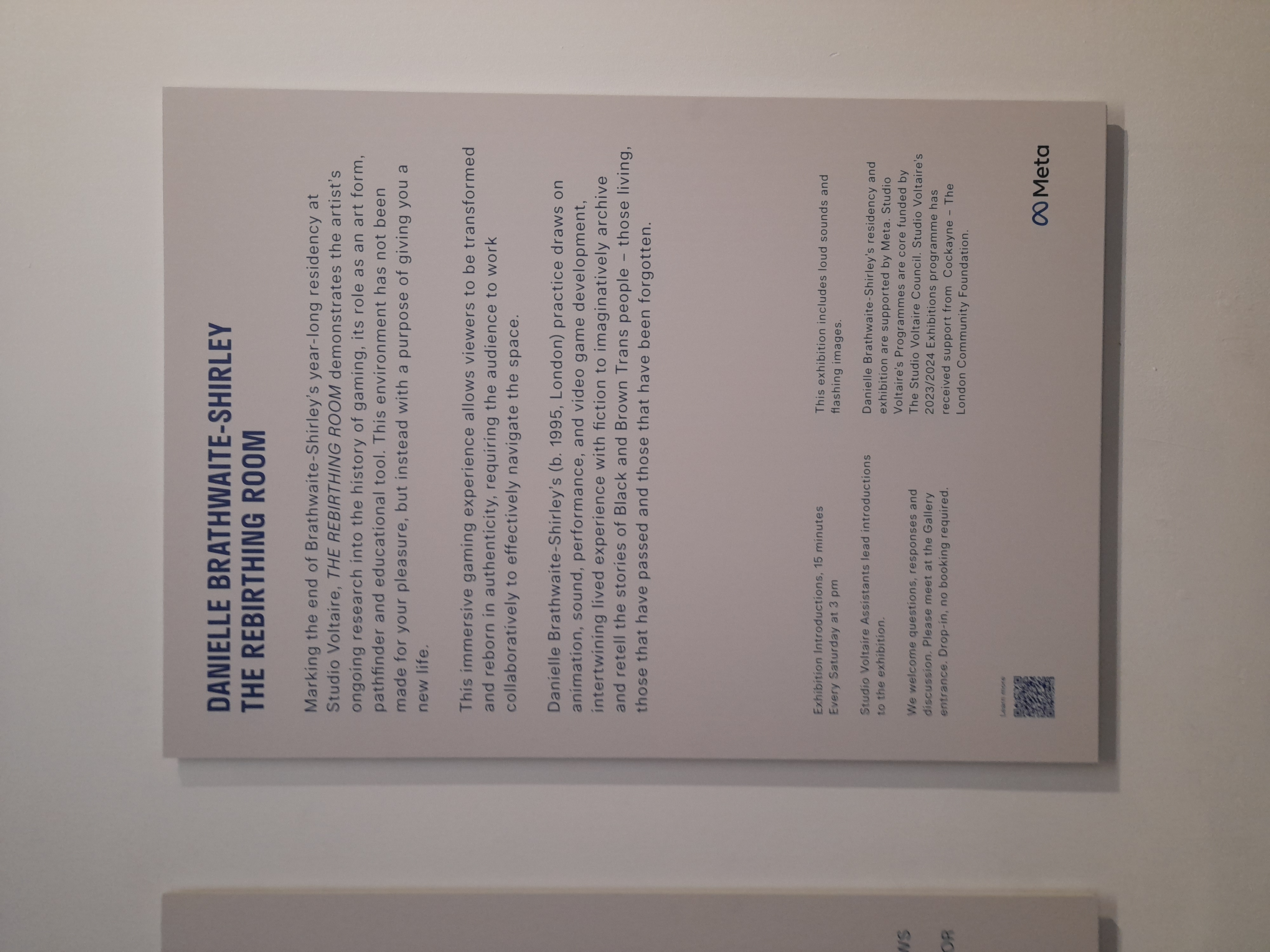
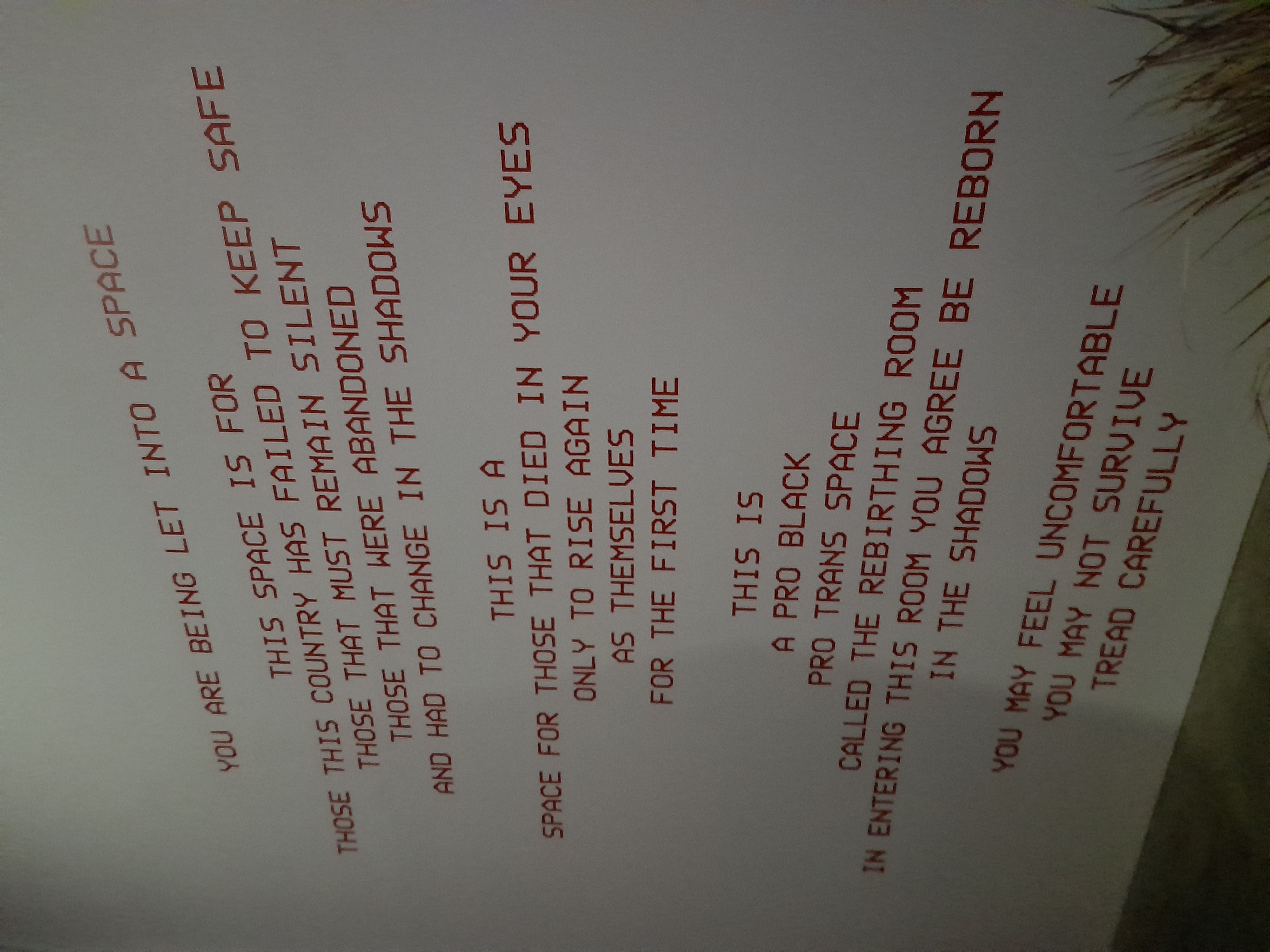
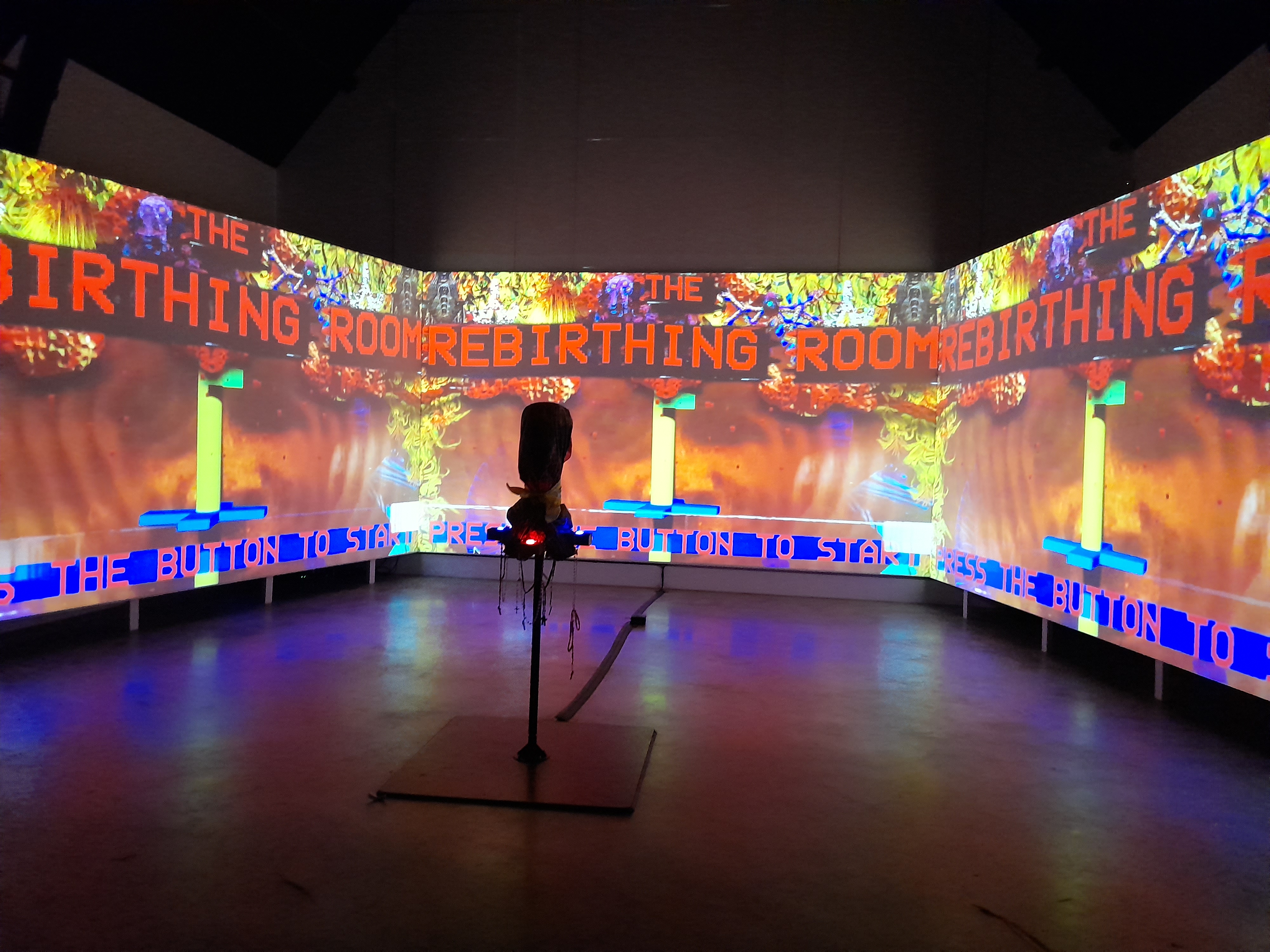
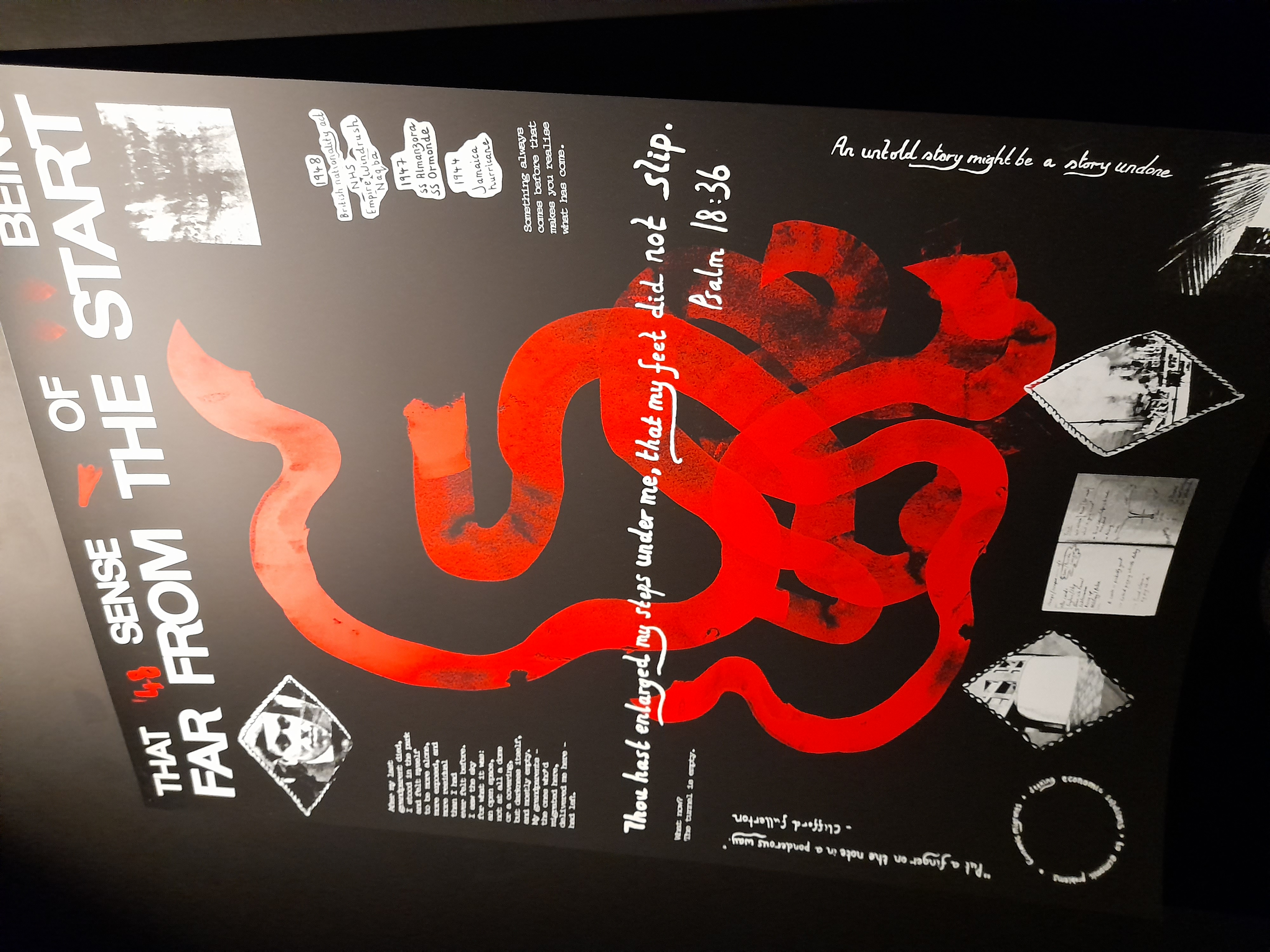
International Asexuality Day!
This year IAD fell on the 6th April, and a 24 hour livestream was organised of panels with lots of different asexual activists. This was a great opportunity for me to hear from current activists on what the contemporary issues are for the ace community. These are the panels I attended:
- Stonewall Ace Report talk with Yasmin Benoit - Benoit talked about her experience as a black asexual, getting into activism because she felt because of her race she "couldn't relate to" a lot of the mainstream discussions that were happening. Expressed her frustrations with how stagnant a lot of mainstream discussions of asexuality are, or were at the time - people talking about what asexuality is and not much else. ALSO WHAT SHE SAID ABOUT BEING SURPRISED MEETING OTHER ACE PEOPLE AND REALISING NOT EVERYONE WAS AROMANTIC. GIRL SAME LMAOOOO. Really interesting that she brought up how one of the only things the media seem able to talk about when it comes to asexuality is "relationship difficulties" - "especially for women", and how media people seemed less interested in talking to her when she told them she was aromantic. Talked about overlap with race and ace spaces being very "white-dominated". After talking more generally she went on to talk in more detail about the Stonewall Ace in the UK Report - said she wished it could have been longer and talked about education (but there were problems with the increased barriers to interviewing minors). AND THEN SHE TALKED ABOUT HER EXPERIENCE ON SEX EDUCATION A WIN FOR ME (how was it someone else who thought to ask about it lol) - Talked about how it was her first experience consulting on a TV show, before she came on board O was meant to be a "mystical" character - Benoit apparently shot that down because "we can't do the mystical Asian character" (LOL). Talked about how she wanted O to be a "messy" character because teen dramas are always about messy characters - also apparently the original intent of the storyline was to be "a commentary on how cancel culture disproportionately affects minorities" which was genuinely shocking to me - she acknowledges that she doesn't think that really came across lol. Also made a point that a lot of the discussion about asexuality these days is very aimed at young people - for example she argues that most ace characters are young (I've definitely already noticed that most ace characters are seen in teen shows) - also made the broader point that a lot of characters are in things like video games, which older people tend to be less likely to be engaged with. I do think she also made a really interesting point that because the media is so "oversaturated" now, portrayals of asexuality don't "hit" the way portrayals of LGBTQ characters would have in the 90s, when more people were tuning in to watch the same show.
- Also during that panel they dropped a link to another asexuality study, which I'd like to look into after.
- Writing About Asexuality panel with Francesca Anelli, author of Lo Spretto Dell'Asessualita - obviously v relevant to me!! Her essay is only available in Italian at the moment, but she talked about writing it from a "political perspective" - didn't want it to just be asexuality 101! There's a fun double meaning of Spretto meaning both "spectrum" and "spectre"! Talked about the "difficult" relationship between the a-spec and academia - not a lot of data on asexuality and stuff because it's not seen as worth researching. Also talked about how her book was the first Italian book published on asexuality, but that she isn't "proud" of this because she thinks it's such a shame that this is the case. One of the panelists mentioned Heartstopper - said they thought it created "more interest" in the a-spec - apparently after Heartstopper season 2 premiered a very popular Italian magazine article came out about asexuality - big deal for the Italian ace community! Talked about zines as an important thing for the community and a great way to self-publish! (But with the downside that you can't reach as many people)
- Autistic Aces panel!! Mostly focused on autism over asexuality as far as I could tell - I did really enjoy the person who told their story about how they basically independently invented the concept of asexuality by mashing prefixes and suffixes together and then found out it was a real thing from TV Tropes, which is frankly incredible. Some common themes that came up were how both autism and asexuality made people feel like outsiders, there were a couple of people who said they had a Christian upbringing and were confused by the conflicting messages they got about sex and dating - told not to have sex or date when young and then criticised for not having sex, getting married, having kids etc. when they hit a certain age
- Aro Erasure panel with Jae, an aro allosexual activist from Italy! Good to see some discussion of amatonormativity and the experiences of aro people who aren't asexual. Talking about the pros and cons of having separate aro and ace activism vs more integrated spaces and activism. Discussion of aro erasure and people's misunderstanding of the SAM was interesting - one person had a story about writing an article on ace and aro erasure which was (ironically) edited so it only mentioned ace people
There were some other panels I was interested in but missed because either they were too early or too late, but fortunately they seem to have all been recorded so I'll be catching up on those next week!
Other Events of the week
- We're in the full swing of things with promoting the research project and finding participants! AUBSU have sent out my call for participants in their student newsletter, the LGBTQ+ officer has sent it to the LGBTQ+ network discord server and advertised it on their instagram, I've heard back from SUBU and they're happy to advertise it to BU students and I've now sent them my instagram graphics to use, I've already had several people express interest in being a part of the a-spec group, and one of them has even offered to spread the word to some local queer networks outside the universities! It's all pretty positive progress, though it does mean the pressure is now on to get my participant information sheet finished so I can actually tell all these lovely people the actual details of the project.
- Submitted my thesis draft, as well as a draft of my participant information sheet and interview questions. And then died. Badly.
- Graduate school life drawing session on Wedsesday focusing on contemporary portraiture! Getting back into life drawing still feels like pulling teeth but I liked the part where we just fucked around with paint and ink and tape and other random materials.
- In an exciting new development in the "women in horror and how horror about women is so often focused around pregnancy/motherhood" saga that I briefly brought up in a previous entry but have been rotating in my brain WAY MORE (I just don't talk about it here because you guys don't want to hear all my Angel season 4 tangents trust me. I'm sparing you), it turns out that pregnancy horror can be good sometimes, actually. All of this is a roundabout way of saying that me and Miles watched the film Titane, which is a bizarre French psychological horror film about a woman who gets pregnant with a robot car baby. STAY WITH ME. IT ACTUALLY SLAYED. It was actually really interesting from a gender perspective and there was a lot of material that could be considered really resonant with the experiences of trans people (of any gender). I still haven't fully parsed out my thoughts on it because it was objectively kind of a lot but I appreciated that it was very visceral in its horror but still felt like it had more of a point than just "yeah pregnancy's gross huh?" Anyway unsure if literally any of this is relevant but whatevar.
- In addition to AUBSU, SUBU, and the LGBTQ+ network helping me with promotion, I've also been promoting participation in the focus groups myself through society group chats, the grad school group chat, some peer connections, and my own personal instagram, and sending out an email to all the different course groups (not sure the last part actually worked though since I think our uni email now blocks students from mass emailing, which they should have been doing for years tbh but it's still annoying when it impacts ME). Now to just sit here with my outlook open staring at my inbox with big wide eyes open waiting for responses.
TV of the week
This week I finished watching Generation! I can't lie I honestly don't have that many thoughts on it - it was pretty similar to Heartbreak High just slightly less deranged in a fun way. Turns out I was right and the asexual character was indeed Greta. The show doesn't explicitly use that term but it's pretty clear in context and there's interviews where the showrunners talk about it, like this one! I feel like they potentially would have got more into it in a second season if the show hadn't been cancelled after the first one.
Anyway I think overall the show was fine, but I do kinda take issue with how they talk about asexuality in the interview in question, and I think it's perhaps representative of some of my wider issues with portrayals of asexuality in TV. Showrunner Daniel Barnz talks about how Greta and Riley "now have to navigate what happens when one of them identifies as asexual. That’s a really fascinating and modern problem. It’s an interesting obstacle to explore in a love story". And yeah I guess that's true and I would have been interested to see how they would have handled it if they got a second season, but also I do wish there were more depictions of asexuality that explored it in ways other than as a source of relationship drama. I guess I shouldn't be surprised, since relationship drama is the bread and butter of teen shows, but if there's one thing I think is clear from all the reading I've done about asexuality and aromanticism, it's that asexuality impacts people's lives in so many ways, and there's so many different facets of it. Why are we apparently not capable of telling stories about it that aren't just about how it makes dating harder. AGAIN. IN SEX EDUCATION SEASON 4'S DEFENCE at least it TRIED to do something different even if the execution wasn't great.
Anyway check out the transcripts here and form ur own opinion or whatevar.
Reading of the week
Back on that Elizabeth Brake grindset (for the last time wahoo!!!) here's my final set of notes from Minimizing Marriage!
- "Stereotypes are particularly pernicious when they operate in conjunction with social, legal and economic structures to limit opportunities for members of one group while benefitting another. This is, roughly, one understanding of oppression within feminist theory. Amatonormativity is oppressive when it privileges members of one form of caring relationship at the expense of nonconformists, whose opportunities are thereby significantly worsened" - point about stereotypes could be v useful (p.98)
- "Not only does privileging male-female monogamy impose costs on sexual minorities, it steers people into relationships that, although they may satisfy the mating drive, have other costs, such as domestic violence and inegalitarian gender roles" (p.100)
- "Social judgements as to the possibility of fulfilment in friendships and care networks, and the invisibility or marginalization of these alternatives, make amorous love relationships 'compulsory', as Rich famously claimed about heterosexuality" (p.100)
- ASEXUALITY POINT: "The focus on 'sexual liberation' has always carried with it the assumption that the goal of such effort is to make it possible for individuals to engage in more and/or better sexual activity. Yet one assumption of sexual norms that many people find oppressive is the assumption that one 'should' be engaged in sexual activity" (p.100)
- "The picture of marriage as governed wholly by affection has always been disingenuous" (p.104)
- Overall argument of part 1 is that marriage "has no unique moral value, nor is it morally transformative, and its benefits must be weighed against substantial costs. (p.107)
- "A long tradition of feminist criticism examines the effects of the pursuit of romantic love and marriage on women's aspirations. Simone de Beauvoir wrote that marriage 'is the destiny traditionally offered to women by society,' leading women to focus on capturing a husband rather than pouring their energies into other - more creative and rewarding - vocations" (p.117)
- REALLY INTERESTING AND FUCKED UP: "Congressman Henry Waxman's investigation into federally funded abstinence education curricula found that some 'treat stereotypes about girls and boys as scientific fact. One curriculum teaches that women need 'financial support', while men need 'admiration'. Another instructs: 'Women gauge their happiness and judge their successes on their relationships. Men's happiness and success hinges on their accomplishments.''" (p.117)
- "Amatonormativity also contributes to women's oppression. The wedding-industrial complex broadcasts amatonormative promarriage propaganda through books, magazines, movies, and advertising, targeting females from young girls to 'career women'. This media bombardment fuels women's vulnerability by anticipation of marriage by intensifying pressure to marry, and, even worse, obscuring the unglamorous side of marriage and its costs" (p.117)
- Basically "Given current gender roles, amatonormativity has a disparate impact on women" (p.118)
- "In US law, for instance, the citizen historically was defined as a male husband and head of family" (p.120)
- I love when people talk shit about the free love movement actually those bitches were so annoying: "The free love view, while proposing diversity in relationship structures, is still amatonormative in taking a certain kind of spontaneous, romantic, sexual love as the human goal" (p.124)
- "After Emancipation and the Civil War, enslaved persons embraced the right to marry as symbolic of civic equality. But a racist discourse sprung up among some chaplains, Freedmen's Bureau workers, and in the press, imputing innate promiscuity to persons of African descent" (p.126)
- "Patricia Hill Collins has argued that marriage is associated with racism in more subtle ways. For instance, she argues, the American 'imagined traditional family ideal' is racialized, as when the 'typical family' is presented as white" (p.127, citing Collins, "It's all in the family: Intersections of Race, Gender, and Nation", p.62)
- "Marriage law continues to be ethnocentric, enshrining an ideal handed down from European Christians, spread around the world by nineteenth-century missionaries, and built, in the United States, on the extermination or criminalization of Native American marriage practices" (p.127)
- What do you MEAN the US Healthy Marriage Initiative is a thing that exists????????? What were the government fucking DOING in the 2000s????? (p.128)
- Reported "'Crisis-level statistics' among African Americans: for instance '42 percent of African American adults are married, compared to 61 percent of whites' [...] and '68 percent of AA [sic] births are to unmarried women'" (p.128)
- More good examples of amatonormativity in action: "Current U.S. marriage promotion and abstinence-until-marriage education promote gender roles and amatonormativity. These policies clearly violate neutrality and public reason. For example, state media campaigns 'extol the virtue of marriage' in Arkansas and Oklahoma; West Virginia provides cash payouts to married couples; and welfare workers are 'encouraged to discuss marriage with their clients'" (p.204)
- Positionality and stuff: Brake says "I consider my position responsive and sympathetic to lesbian and queer critiques of marriage such as Claudia Card's, Paula Ettelbrick's, and Drucilla Cornell's" (p.205)
Previous week
Next week
Back to weekly journal
Back to home











































